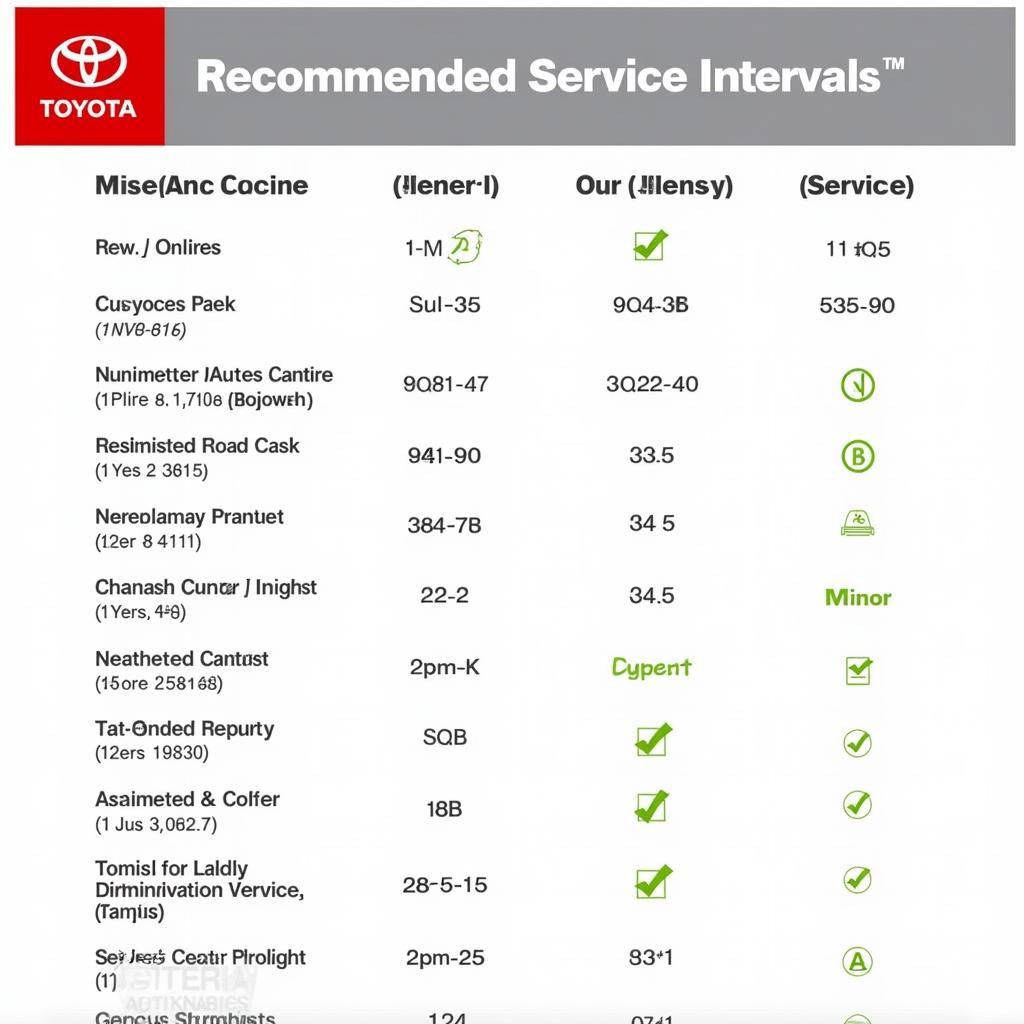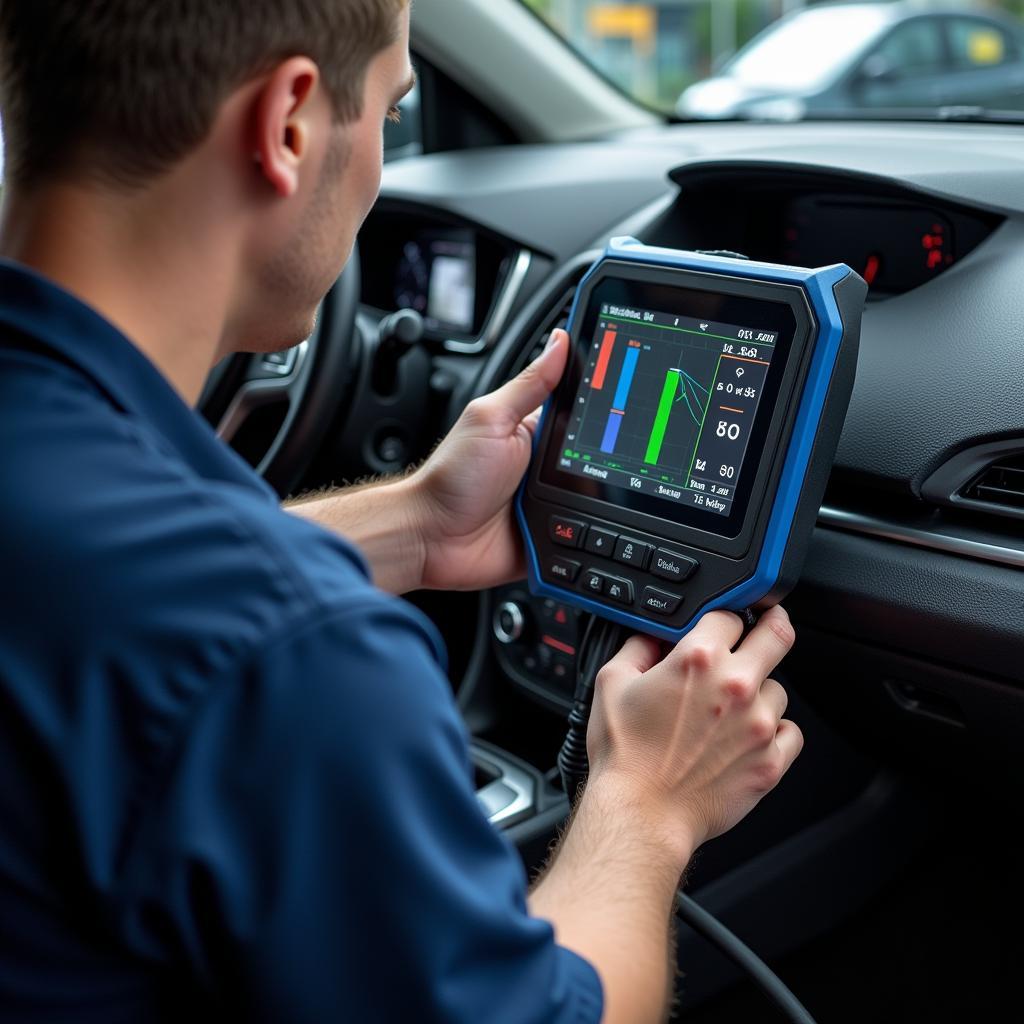When Shall I Service My Car? A Comprehensive Guide
Knowing when to service your car is crucial for maintaining its performance, safety, and longevity. Ignoring regular maintenance can lead to costly repairs down the road and potentially dangerous driving conditions. This guide provides a comprehensive overview of car servicing schedules, factors affecting service intervals, and answers to frequently asked questions to help you keep your vehicle in top condition.
Understanding Your Car’s Service Schedule
Most manufacturers provide recommended service schedules in the owner’s manual. These schedules outline specific maintenance tasks based on mileage or time intervals, such as oil changes, filter replacements, and fluid top-ups. Understanding these recommendations is the first step in knowing When Shall I Service My Car. These schedules are generally categorized into minor and major services. Minor services usually involve routine checks and replacements, while major services are more comprehensive and address more complex components. Failing to adhere to these schedules can void your warranty and potentially lead to premature wear and tear.
Decoding the Manufacturer’s Recommendations
The service intervals recommended by your car’s manufacturer are a good starting point, but they are not set in stone. Factors such as driving conditions, driving habits, and climate can influence how often your car requires servicing. For instance, if you frequently drive in stop-and-go traffic, tow heavy loads, or live in an area with extreme temperatures, you might need to service your car more frequently than the manufacturer suggests. Pay close attention to your car’s performance and consult a qualified mechanic if you notice any unusual noises, vibrations, or warning lights.
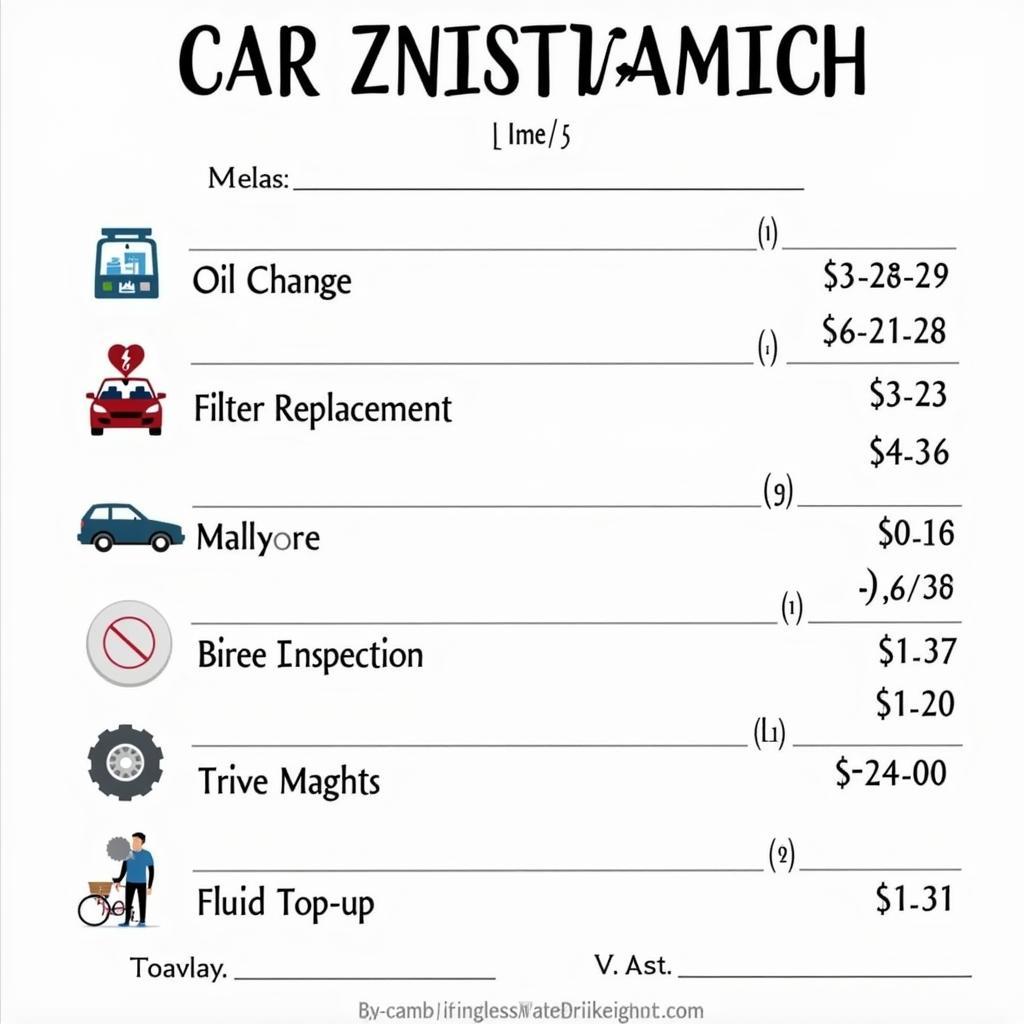 Car Service Schedule and Maintenance Checklist
Car Service Schedule and Maintenance Checklist
The Importance of Regular Oil Changes
Oil is the lifeblood of your engine, lubricating its moving parts and preventing excessive wear. Regular oil changes are arguably the most critical aspect of car maintenance. Fresh oil helps to keep your engine clean, cool, and running smoothly. While the manufacturer’s recommendation is a good guideline, many experts recommend changing your oil every 5,000-7,500 miles, especially if you drive under demanding conditions. Neglecting oil changes can lead to engine sludge buildup, reduced fuel efficiency, and ultimately, engine failure.
Factors Affecting Car Service Intervals
Beyond the manufacturer’s recommendations, several factors can impact how frequently your car needs servicing. Understanding these factors can help you determine the optimal service schedule for your specific vehicle and driving habits.
Driving Conditions and Habits
Driving in harsh conditions, such as extreme heat or cold, dusty environments, or stop-and-go traffic, puts extra strain on your vehicle’s components. Similarly, aggressive driving habits, such as rapid acceleration and hard braking, can accelerate wear and tear. If your driving conditions or habits are particularly demanding, consider servicing your car more often than the manufacturer’s recommendations.
Vehicle Age and Mileage
As your car ages and accumulates mileage, its components naturally wear down, increasing the risk of breakdowns and malfunctions. Older vehicles generally require more frequent servicing and maintenance than newer ones. Keeping a detailed record of your car’s service history can help you anticipate potential issues and address them proactively.
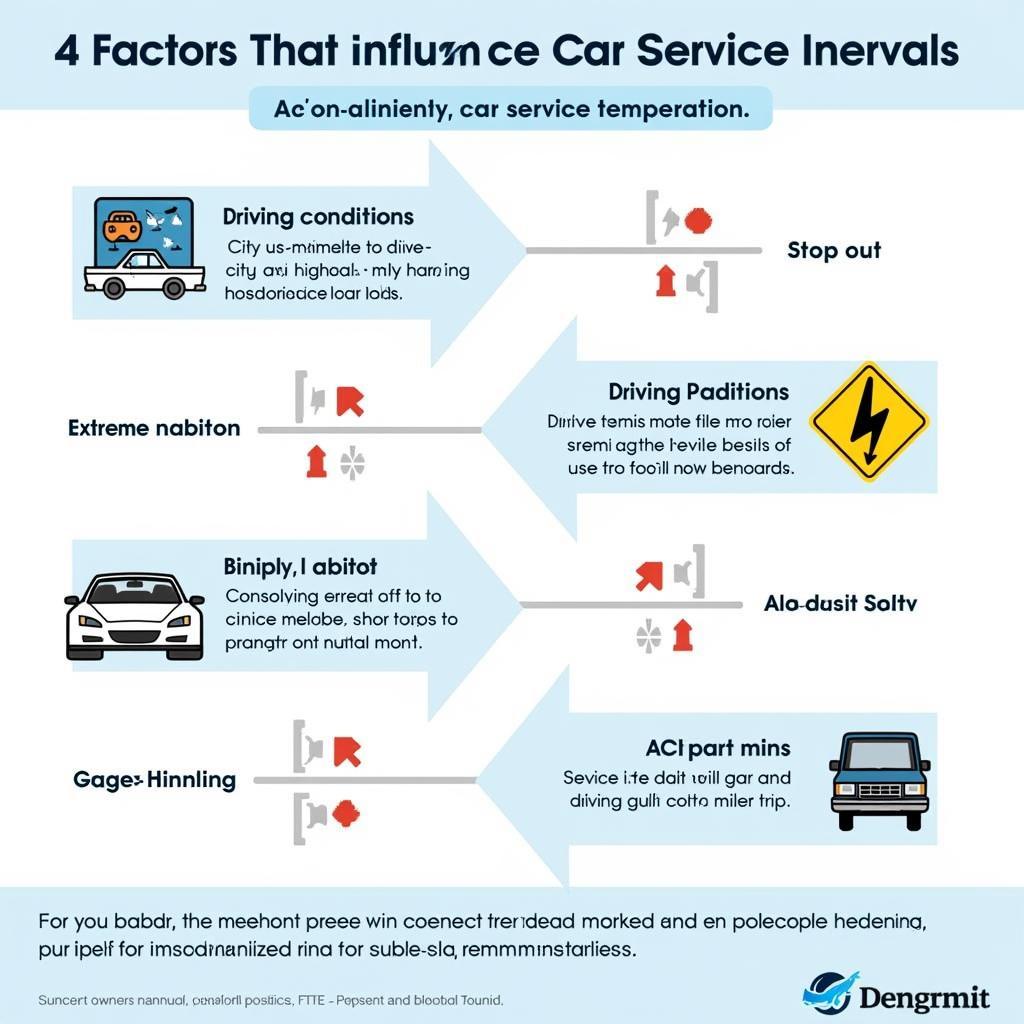 Factors Affecting Car Service Intervals
Factors Affecting Car Service Intervals
Type of Vehicle
Different types of vehicles have different service requirements. For instance, trucks and SUVs, especially those used for towing or off-roading, typically require more frequent servicing than standard passenger cars. Consult your owner’s manual for specific recommendations based on your vehicle type.
“Regular preventative maintenance is always cheaper than dealing with major repairs down the line.” – John Smith, Certified Automotive Technician.
Warning Signs Your Car Needs Servicing
Even if you follow a regular service schedule, it’s important to be aware of warning signs that your car might need immediate attention. Ignoring these signs can lead to more serious problems and potentially dangerous driving situations. Some common warning signs include unusual noises, vibrations, warning lights on the dashboard, fluid leaks, and changes in performance, such as decreased fuel efficiency or difficulty starting.
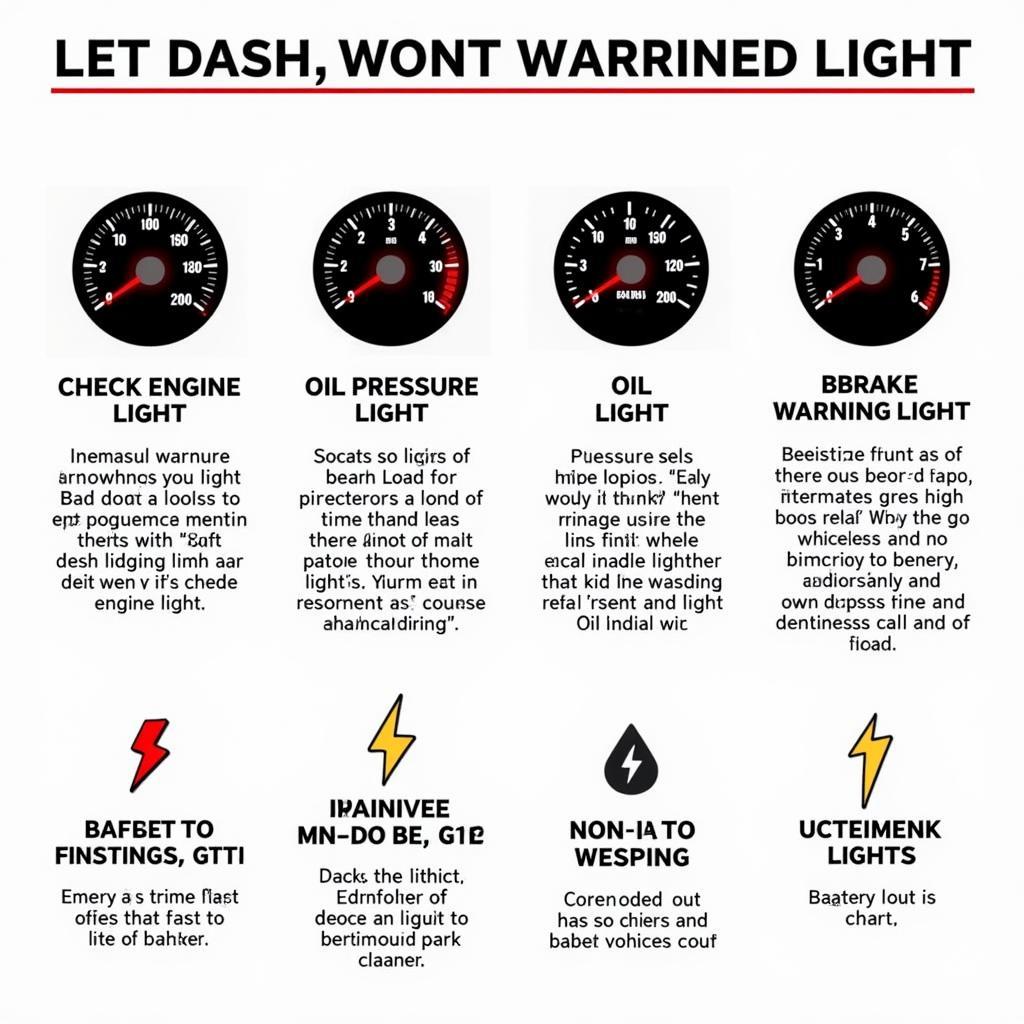 Car Dashboard Warning Lights
Car Dashboard Warning Lights
Conclusion
Knowing when shall I service my car is essential for ensuring its safety, reliability, and longevity. While the manufacturer’s recommendations provide a good starting point, several factors, including driving conditions, habits, and vehicle type, can influence the optimal service schedule. By understanding these factors and being attentive to your car’s performance, you can keep your vehicle running smoothly and avoid costly repairs in the future. Regular car service is an investment that pays off in the long run.
FAQs
-
How often should I change my car’s oil? A good rule of thumb is every 5,000-7,500 miles, but consult your owner’s manual for specific recommendations.
-
What is included in a major car service? A major service is more comprehensive than a minor service and typically includes spark plug replacement, fuel filter replacement, and a thorough inspection of various systems.
-
What are some common warning signs that my car needs servicing? Unusual noises, vibrations, warning lights on the dashboard, fluid leaks, and changes in performance are all potential indicators that your car needs servicing.
-
How can I find a reliable car service center? Ask for recommendations from friends and family, read online reviews, and check for certifications and accreditations.
-
Is it necessary to follow the manufacturer’s recommended service schedule? Following the manufacturer’s recommendations is a good starting point, but factors such as driving conditions and habits can influence the optimal service schedule.
-
Can I service my car myself? Some basic maintenance tasks, such as checking fluids and changing air filters, can be done at home, but more complex repairs should be left to qualified mechanics.
-
How much does a car service typically cost? The cost of a car service varies depending on the type of service, the make and model of your car, and the location of the service center.
Common Car Service Scenarios
-
Scenario 1: Your car is making a strange grinding noise when you brake. This could indicate worn brake pads and requires immediate attention.
-
Scenario 2: Your check engine light is illuminated. This could indicate a variety of issues, from a loose gas cap to a more serious engine problem. It’s important to have the issue diagnosed by a qualified mechanic.
-
Scenario 3: Your car is due for its scheduled maintenance according to the owner’s manual. Even if your car seems to be running fine, it’s important to follow the recommended service schedule to prevent potential problems.
You can also explore related articles on how is usc career services for further information.
Further Reading and Resources
- Check your car owner’s manual for specific service recommendations.
- Consult with a qualified mechanic for personalized advice.
- Research online resources for car maintenance tips and information.
Need Assistance? Contact us via WhatsApp: +1(641)206-8880, Email: [email protected]. Our customer service team is available 24/7.
